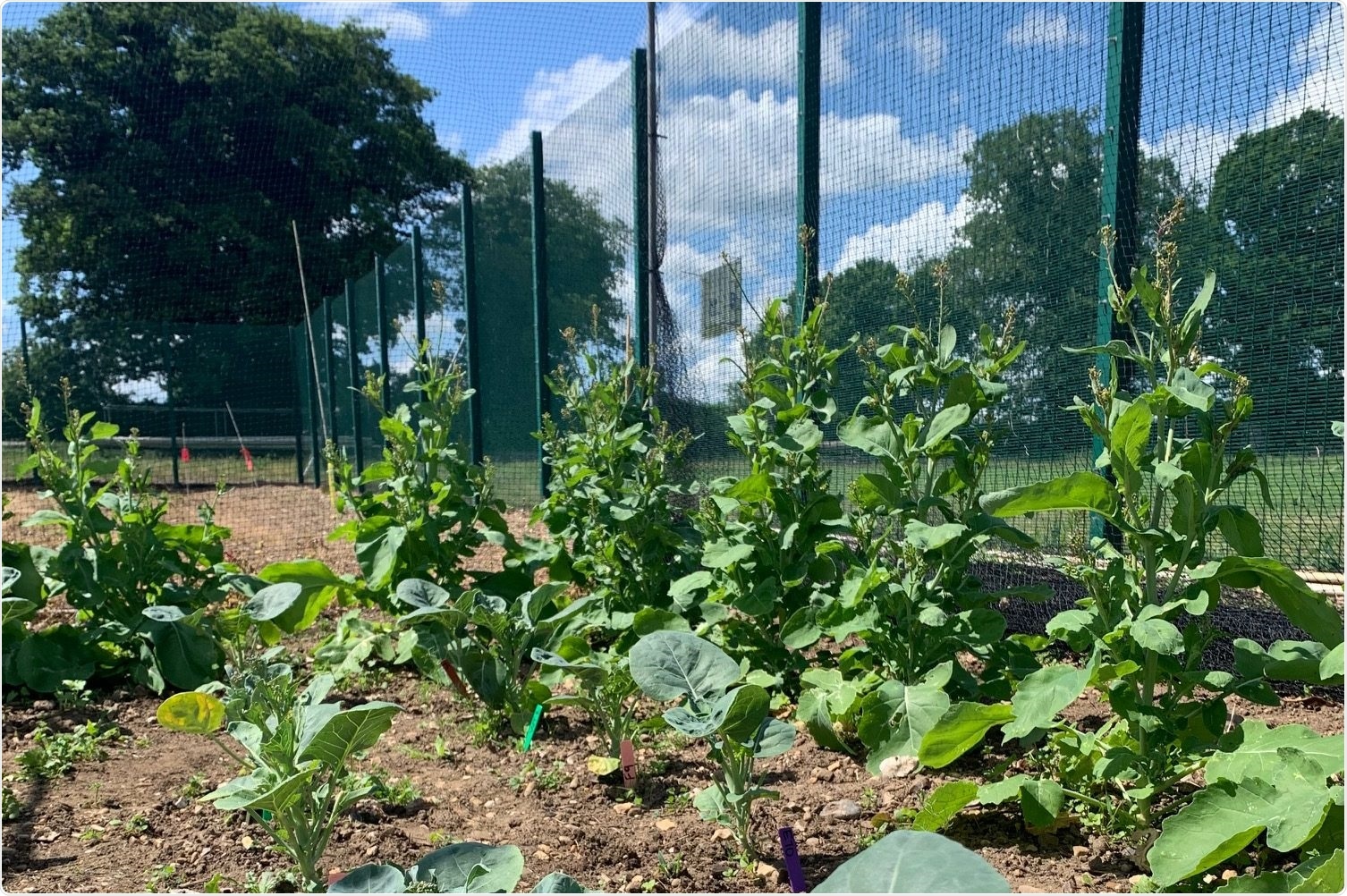According to the researchers, field trials that explore healthy chemicals in agronomically significant brassica crops have underscored the “immense potential” of gene-editing technology.

Image Credit: John Innes Centre
These trials were the first to use this gene-editing technology in the United Kingdom, ever since the gene-edited crops were reclassified as genetically modified species by the Court of Justice of the European Union (CJEU) earlier in 2018. These findings came at a time when the UK government was considering whether to permit the use of gene-editing techniques for food production purposes, following a public consultation headed by DEFRA.
Our results demonstrate the immense potential for gene-editing to facilitate crop improvement by translating discoveries in fundamental biological processes. Modern technologies such as gene-editing by CRISPR provide opportunities to nutritionally fortify foods and safely adapt crops to new environments, addressing the serious challenge that the climate crisis is posing to global food production.”
Lars Østergaard, Professor and Group Leader, John Innes Centre
Østergaard is also the co-author of the study.
The study targeted glucosinolates, which are known to impart a unique, often pungent, flavor to cruciferous vegetables, like broccoli, cabbage, and kale are linked to positive impacts on human health.
Such sulfur-containing organic compounds are solely produced by this group of plants and are assumed to have health-promoting properties, such as being anti-carcinogenic, lowering the risk of cardiovascular disease, and supporting improved blood glucose management. As a result, raising the levels of these organic compounds has been a major goal for breeders of brassica vegetable.
A previous study utilizing model plants under ideal laboratory settings has revealed that the gene MYB28 regulates the biosynthesis of glucosinolate in the Brassicaceae family. However, the effects of this master regulator have not been validated by translating them into field-grown agricultural plants.
In this proof-of-concept study, investigators have effectively used the CRISPR-Cas9 gene-editing technology to “knock out” the MYB28 gene in Brassica oleracea—a species that contains several common cultivars, like broccoli. Multiple copies of various genes, particularly those involved in the glucosinolate biosynthesis pathway, complicate the single gene knockouts in Brassica genus.
The gene-edited plants were cultivated in field trials in line with the 2001/18 GMO regulation and according to the ECJ ruling in 2018. According to genetic and metabolomic analyses, the gene knockout caused the down-regulation of glucosinolate production genes and also reduced the build-up of glucosinolates in the florets and leaves of myb28 mutant broccoli plants grown in the field.
For the first time, these results showed that MYB28 in B. oleracea controls glucosinolate levels in a field-based setting, which is consistent with the earlier findings obtained in the glasshouse and with model plants.
One application of the gene-editing toolbox is to reduce gene activity through a knockout.
By showing that the master regulator of methionine-derived glucosinolate biosynthesis genes, MYB28, functions in the field, as we know it does in glasshouse-grown plants, the MYB28 gene represents a reliable target for manipulating glucosinolate levels in vegetable brassicas. This study highlights the potential of gene editing in the ongoing characterization and modification of these processes in the field, in often complex crop systems.”
Dr Mikhaela Neequaye, Study First Author, John Innes Centre
Source:
Journal reference:
Neequaye, M., et al. (2021) CRISPR-Cas9-Mediated Gene Editing of MYB28 Genes Impair Glucoraphanin Accumulation of Brassica oleracea in the Field. The CRISPR Journal. doi.org/10.1089/crispr.2021.0007.